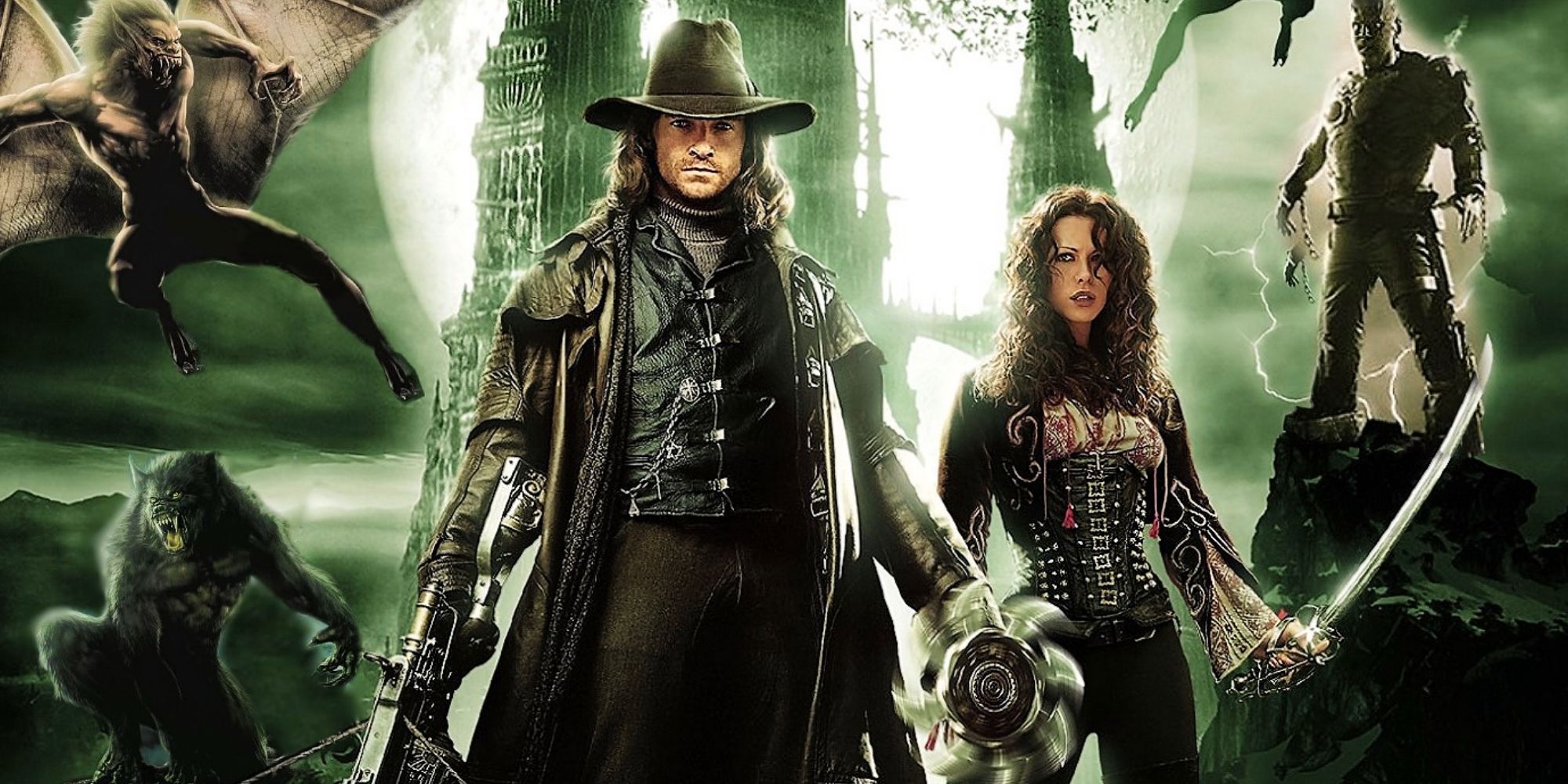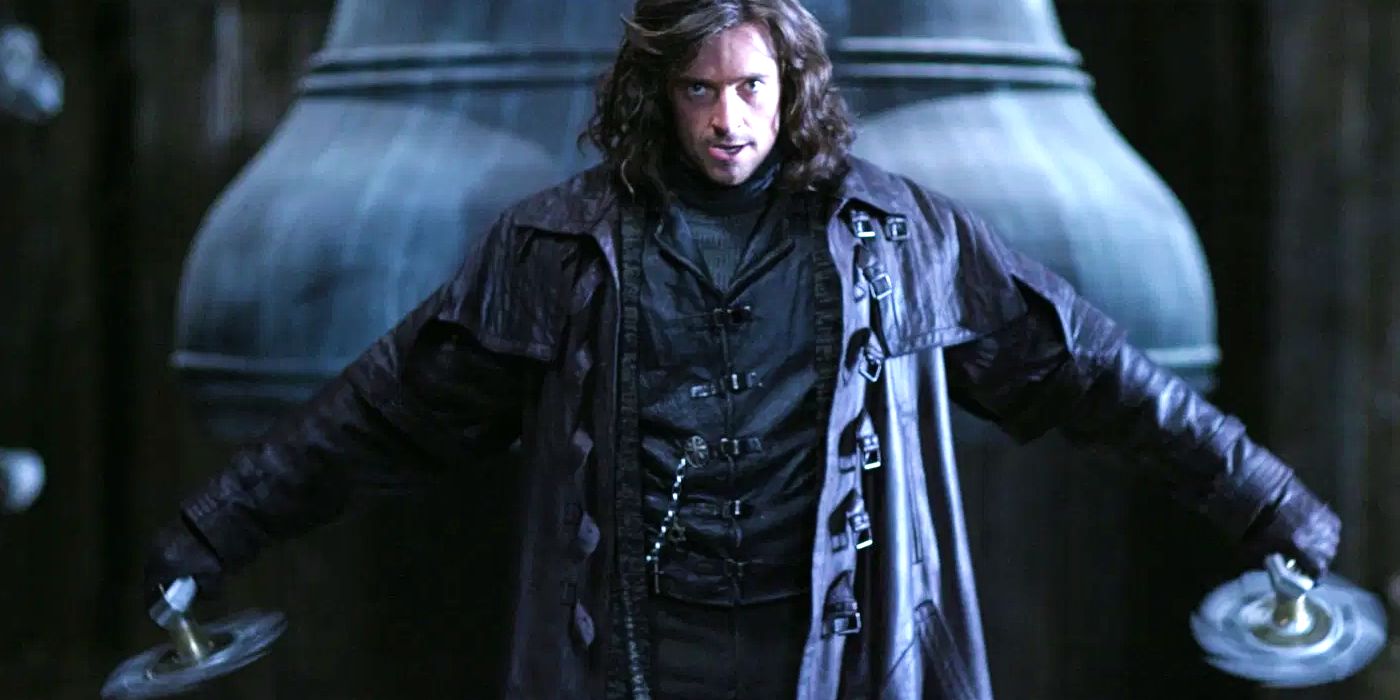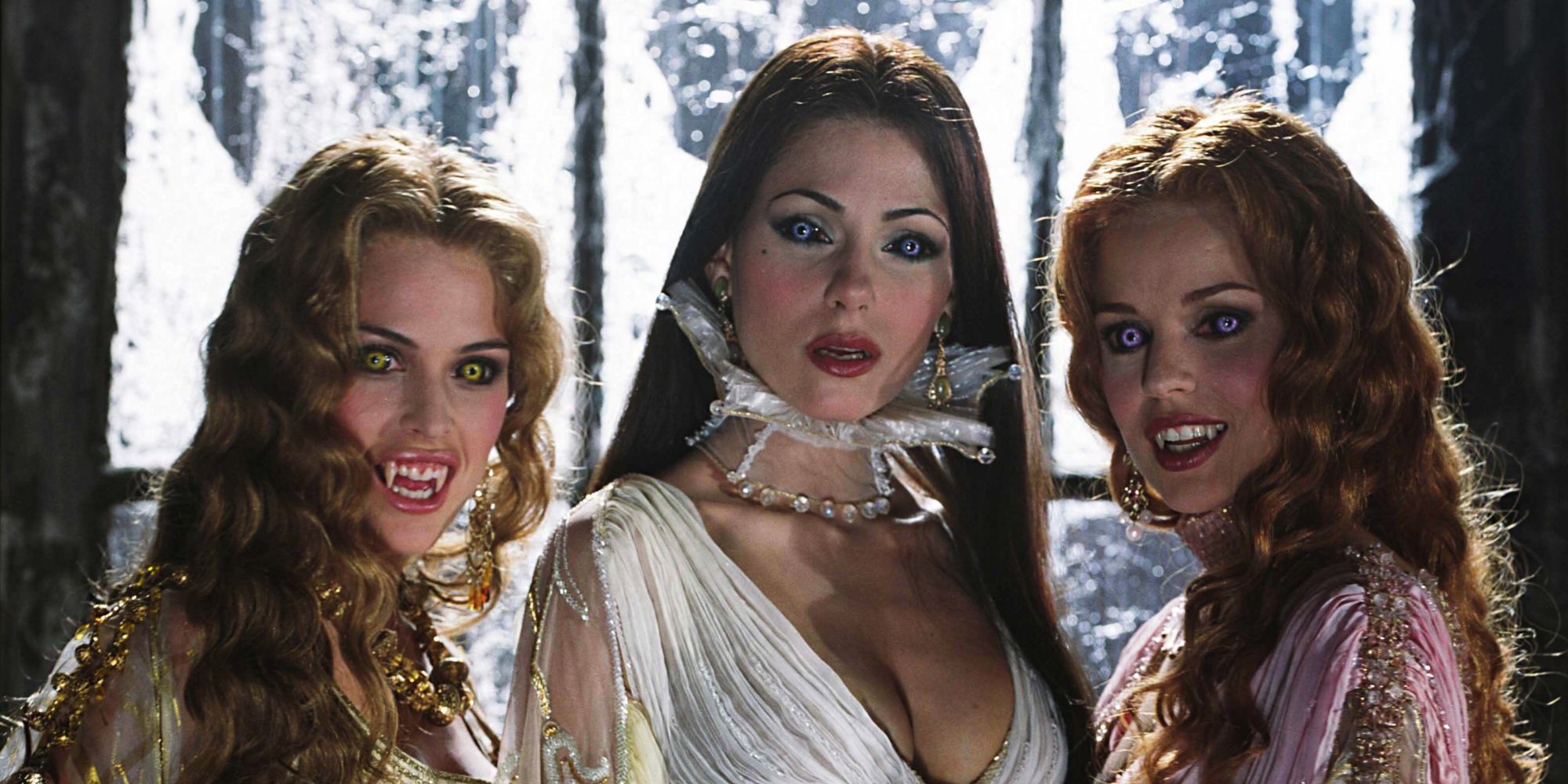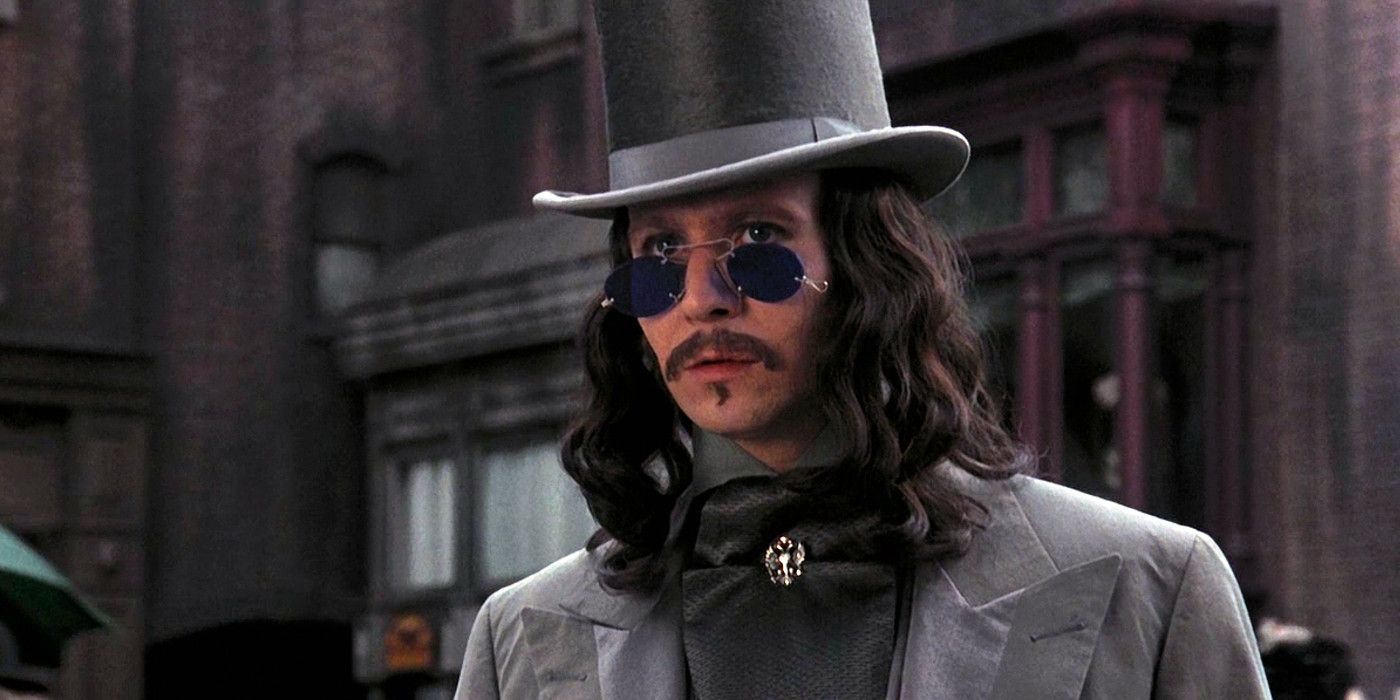
How can Universal’s upcoming Van Helsing reboot be made into a proper, compellingly fleshed-out horror movie? Julius Avery, creator of the zombie horror film Overlord, has been slated to direct the newest installment of Van Helsing, while the project itself is yet to be titled and the casting details are yet to be revealed.
The character of Abraham Van Helsing was first introduced in Bram Stoker’s 1897 Gothic horror novel, Dracula, in which he is an aged polymath with a wide range of obscure interests, including a deep knowledge of the occult. The character of Van Helsing has been adapted to film innumerable times, including Hugh Jackman assuming the titular role of vengeful monster hunter in the 2004 Van Helsing. Unfortunately for Universal, who intended the film as a homage to the Universal Horror Monster movies from the 1930s to '40s, Van Helsing garnered mostly negative reviews, despite grossing over $300 million worldwide.
The critical acclaim of Universal’s 2020 hit, Invisible Man is indicative of the fact that distinctive, creative retellings of legacy characters work best when it comes to reboots, as opposed to uninspired, hackneyed narratives exemplified by the commercial failure of Tom Cruise’s The Mummy. The utter failure of the Dark Universe is further testament to this, urging the upcoming Van Helsing reboot to be a standalone entry in its own right. Here are some of the ways in which the Van Helsing reboot can be crafted as a proper horror movie, replete with in-depth character study and nuanced narrative execution.

The trope of the antihero, when executed well, harkens a narrative helmed by a compelling central figure, who often defies conventional ethical codes to carry out a quest or agenda. The antihero became an established form of social criticism with the advent of the unnamed protagonist in Fyodor Dostoyevsky’s Notes from the Underground, whose emergence marked a shift to complex, self-aware narratives like that of Vince Gillian’s Breaking Bad and Alan Moore’s Watchmen. The character of Van Helsing has already been molded to fit specific narratorial dynamics countless times, as exemplified in Anthony Hopkins’ almost-ruthless and eccentric portrayal of the monster hunter in Bram Stoker's Dracula. On the other hand, the 2004 rendition of Van Helsing positions him as the archangel Gabriel, who is presented as a morally-upright figure despite harboring conflicting notions about the Vatican, and the act of monster hunting as a whole.
The Van Helsing reboot is a perfect opportunity for Universal to set the central character as an antihero figure, positioning him as someone with morally-grey motivations and a murkier past. Stoker describes Helsing as suffering from periodic hysteric breakdowns, who wages a constant war with his own demons as much as he devises ways to defeat the undead. Despite painting a fascinating picture of Helsing, Stoker leaves the character somewhat vague and underdeveloped, which offers an opportunity to craft a meaningful character origin and mythos. How does Van Helsing perceive evil, and what are the motivations that drive him to constantly flirt with the edge of chaos? Is Van Helsing an archetypal figure of the past, or a product of postmodern ennui and existentialism? These questions are worth asking, and the answers shall invariably vary, depending upon the lens with which the titular character is perceived and the socio-historical setting that is bound to shape him.

Throughout the countless adaptations of Van Helsing’s character arc, he battles a wide range of monsters, including the formidable vampire Alucard, who is a primary protagonist of the anime series, Hellsing. However, apart from specific renditions of Dracula, mainstream cinematic adaptations of Van Helsing feature mostly unconvincing monsters, such as the cartoonish CG depiction of the werewolf in the 2004 version. While this version also toys with the inherent threat posed by Mr. Hyde, a premise that holds great potential, the execution in terms of plot coherence is unconvincing to say the least. Due to an overabundance of uninspired portrayals of legacy monsters wreaking havoc within the Van Helsing universe, it is crucial for the reboot to approach this aspect with a fresh perspective.
Cinematic monsters are often limited by dramatic portrayals that push the limits of fantastical imaginings, something which can be amended by crafting monsters that genuinely thwart and jeopardize the very axis that the film hinges upon. The presence of compelling stakes with serious ramifications can greatly elevate the premise of the upcoming Van Helsing, wherein the concept of monstrosity can mean much more than fanged teeth or a thirst for blood. It would also be interesting if the reboot were to introduce a character such as Renfield, who can be established as a villain in his own right, sporting a looming threat with method in his madness.

Every narrative involving Van Helsing almost always focuses on his arch-nemesis, Dracula, portrayed in wildly different ways over the years. In BBC’s and Netflix's Dracula, Helsing is re-imagined in the form of a nun, Sister Agatha, who engages in formidable battle with the Count, and is a culmination of his worst fears — “an educated woman with a crucifix.” Despite this fascinating dynamic between the two legacy characters, it is somewhat tiring to witness the age-old rivalry play out, albeit in differently-dressed circumstantial garments.
Above all, Van Helsing is an individual hell-bent on slaying evil of all kinds, especially the ones that lurk amid the shadows and carry out unspeakable acts in covert ways. In order for the Van Helsing reboot to be successful, Dracula does not have to assume center-stage or be in the picture at all, as the creation of a new, menacing monster can help unravel the inner workings of an anguished, complex man, doomed to hunt evil till the end of time.
from ScreenRant - Feed https://ift.tt/37ZpPJz





No comments: